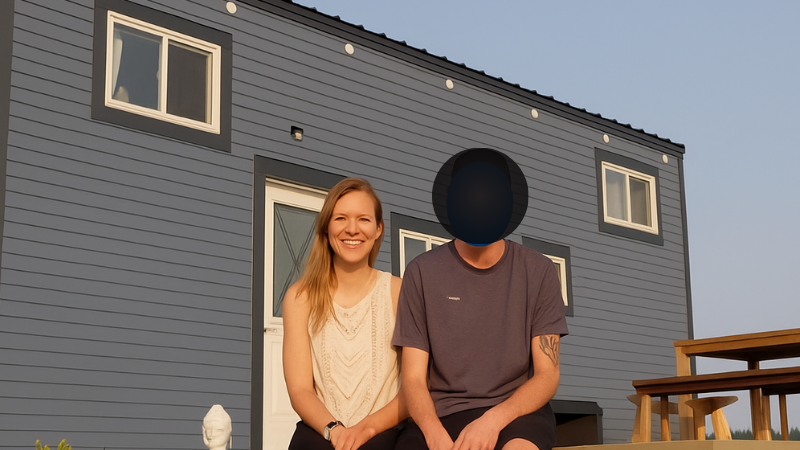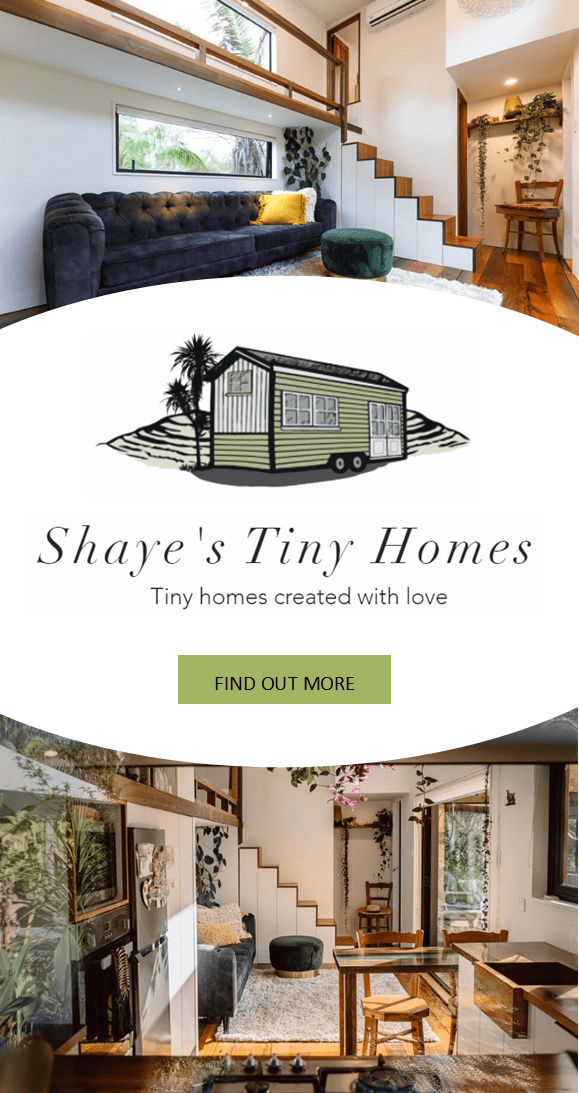Ella left town for two nights. When she returned, her house was gone.
There were no police reports. No public outrage. No headlines. Because legally, no one considered it a theft.
Why? Because in New Zealand, if your home is on wheels and your name isn’t on the right form, someone can tow away your life and no one will stop them. In a country that prides itself on fairness and decency, Ella’s story is a masterclass in how bureaucracy enables abuse.
She spent one year building her tiny house with her partner, Tom. She poured her savings, sweat, and heart into it. They weren’t married, but they shared everything, or so she thought.
When the relationship ended, she gave him space. She stayed with her mother for a weekend. And that’s all it took. Tom hitched the house to a truck and vanished. No warning. No discussion.
Ella returned to find nothing but tyre marks on the grass and a message: “It’s mine now.”
Ella did what anyone would do, she called the police. They told her it was a civil matter. She called a lawyer. They told her it would cost thousands, and she’d probably lose. “It was like I didn’t exist. Like the house didn’t exist. Like the last two years of my life weren’t even real.”
This isn’t a fringe case. It’s an inevitable result of how the law treats tiny houses on wheels, as chattels. Not homes. Not dwellings. Not even protected property in many cases. If your name isn’t on the trailer registration or you don’t have a formal co-ownership contract, you have no rights.
This isn’t an accident. This legal blind spot exists because regulators have refused to evolve alongside reality. As the housing crisis pushes more New Zealanders into alternative living, tiny homes, house buses, cabin shares, the government continues to cling to legal categories designed for buildings that don’t move and relationships that don’t end.
“They told me to take him to court,” Ella says. “But how do you take someone to court when you can’t afford to live anywhere now?”
This isn’t just about Ella. This is about power. And in the tiny house world, power belongs to the person who controls the paperwork, or the parking spot.
-
The one whose name is on the rego holds the keys.
-
The one who owns the land decides who stays.
-
The one who can afford legal representation decides who loses.
Tiny homes have promised freedom, simplicity, a way out of the traditional housing trap. But as this story shows, that promise can be ripped away in a single weekend, not by a disaster, but by someone you once trusted.
If you’re building or living in a tiny home, and you’re doing it with a partner or on someone else’s land, you need to protect yourself now.
Here’s what you must do, even if it feels unromantic or paranoid:
-
Co-ownership agreement. Write it. Sign it. Get legal advice.
-
Trailer registration. Your name must be on it. Not just theirs.
-
Land use contract. If it’s not your land, your presence can be revoked overnight.
And don’t assume kindness or fairness will save you. That’s not how the system works. That’s not how power works. After months of back-and-forth and a $6,000 legal bill, Ella walked away.
“He offered me $5,000 to ‘settle it quietly.’ I spent more than that trying to get what was already mine. In the end, I had to choose peace over possession.”
She now rents a one-bedroom flat in town and is saving to build again, this time, solo. “I’ll never go into another project like that without legal protection. Love makes you naive. Losing everything makes you smart.”
This isn’t a warning story. It’s an indictment. A home was stolen in broad daylight. The legal system yawned. And the people most at risk, those building alternative housing solutions for survival, are being left exposed by the very institutions meant to protect them.
Until that changes, this will continue to happen. And the next house that rolls away might be yours.


